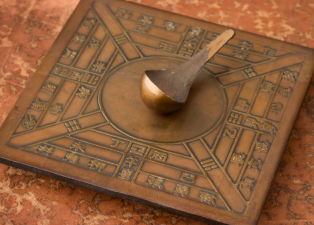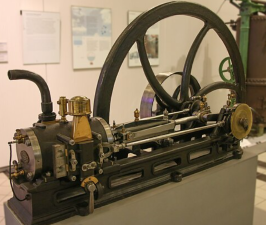Throughout human history, countless great inventions have transformed the world and propelled civilization forward.
These inventions were not merely technological breakthroughs; they exemplified human wisdom and creativity. They profoundly impacted human lifestyles and shaped the foundations of modern society.
Wheel
The wheel is an indispensable part of human transportation, propelling civilization forward. From ancient times to the present, the wheel has played an essential role in human transportation, setting the world in motion. From human-powered carts to modern mechanical motion, the wheel's principle lies behind them. It can be said that the invention of the wheel significantly propelled the progress of human civilization, setting it in motion and making it one of humanity's greatest inventions.
Compass
The compass had a significant impact on navigation and geographical discovery, contributing to the development of global navigation systems. The compass, one of the Four Great Inventions of Ancient China, not only left a profound mark in Chinese history but also had a profound impact on navigation and geographical discovery worldwide. During the Han Dynasty, the compass, known as the "Sinan," was introduced to Europe and Arabia by sea, ushering in a new era of geographical discovery. As time went on, the invention of the compass laid a solid foundation for the flourishing global navigation system today. Today, navigation systems have become an indispensable part of our lives, widely used in various high-tech fields, bringing immense convenience to people's travel and daily lives.
Internal Combustion Engine
The internal combustion engine, often called the driving force behind machinery, was finally perfectly designed and built in the late 19th century after decades of meticulous research and tireless effort by engineers. The internal combustion engine ushered in the industrial age and promoted the development of productivity. Its invention marked the true entry of the world into the industrial age, greatly promoting the development and progress of human productivity. It can be said that without the great invention of the internal combustion engine, human prosperity and progress would be impossible.
Light Bulb
The invention of the light bulb marked the end of darkness at night, consigning the kerosene lamp to history. The light bulb transformed human lighting, making learning and daily life more convenient. This revolutionary invention, ingeniously crafted by Edison, brought light and vitality to the world. Whenever we think of the light bulb, we always recall the famous saying: "Genius is one percent inspiration, ninety-nine percent perspiration." It was this masterpiece that freed humanity to devote more time to learning, production, and daily life, enriching our nights. Imagine how agonizing it would be to spend long nights in darkness. Today, the light bulb has become an indispensable part of our lives.
Penicillin
Throughout history, infectious diseases once wreaked havoc and ran rampant. However, their reign was ended in 1928 by an unexpected discovery: the birth of penicillin. Penicillin ended the reign of infectious diseases and became a vital antibacterial drug. A Scottish scientist, while conducting an experiment, accidentally left the lid on a bacterial culture dish, causing mold to grow inside. Surprisingly, wherever the mold formed, the bacteria died. After in-depth research, scientists discovered that the mold with antibacterial properties was Penicillium. After 20 years of tireless work, chemists successfully purified Penicillium and developed penicillin. This great invention enabled humans to resist a variety of bacterial infections. Especially during World War II, penicillin became a miracle drug that saved countless battlefield wounded.









